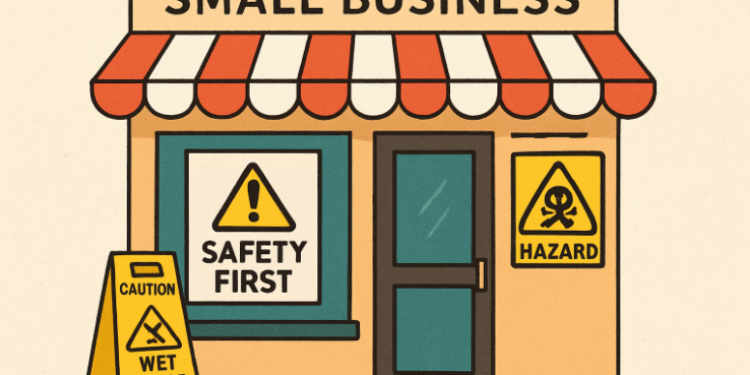What Is General Liability and Why Does It Matter?
General liability is a cornerstone of small business risk management. It covers claims that can arise from everyday operations, including bodily injury, property damage, and legal costs associated with lawsuits. Without sufficient protection, even a minor incident could jeopardize a company’s future. Businesses of all sizes face these risks, but small businesses, in particular, can be more vulnerable to the financial impact.
Understanding these liabilities is essential for business continuity and reputation management. Gaining proper coverage provides peace of mind to business owners, enabling them to focus on growth rather than constant worry over potential claims. To get a comprehensive view of what coverage you may need and how to tailor protection for your business, you can learn more here. It is important to regularly review your policies to ensure they align with any changes in your business operations. Consulting with insurance professionals can help identify gaps and customize coverage options. Remember, proactive risk management is key to sustaining long-term success.
Typical Liability Claims That Catch Owners Off Guard
Many small business owners are surprised by the types of incidents that can result in liability claims. According to the Insurance Information Institute, slip-and-fall accidents remain one of the most common reasons for lawsuits, often stemming from seemingly harmless mishaps such as wet floors, uneven surfaces, or poor lighting. In addition to physical injury claims, property damage caused accidentally to customer belongings can also lead to unexpected expenses.
Businesses sometimes overlook exposures related to contract work, temporary employees, or off-premises activities. These scenarios can complicate coverage and lead to disputes if not managed correctly. For a deeper dive into common business legal risks and how to address them, consult this Forbes overview of legal risks.
Understanding Premises and Operations Risks
The physical location of your business presents a unique set of hazards. Foot traffic, deliveries, and maintenance work all carry the potential for injury or damage. For instance, restaurants, retailers, and offices frequently encounter scenarios where someone trips, falls, or sustains another minor injury on-site.
Operations risks go beyond the property itself. Off-site work, such as installations or consultations, comes with its own set of exposures. Well-maintained premises, clear signage for hazards, and vigilant operations protocols are key to reducing these risks. A robust risk management plan should routinely assess both on-premise and off-premise activities.
How Product-Related Claims Affect Small Businesses
Product liability is an often-underestimated area of risk, especially for businesses involved in manufacturing, distribution, or retail. Even a well-designed product can fail due to unintentional defects or inadequate instructions. Claims may arise from physical injuries, property damage, or even customer dissatisfaction if the product does not meet expectations.
Small businesses should work closely with suppliers, maintain thorough testing and quality assurance processes, and ensure that product labels are clear and accurate. Having a recall plan in place can also be critical for responding rapidly if a defect is discovered post-launch. Insights from the Insurance Information Institute highlight how general liability policies help manage these risks.
Personal and Advertising Injury: More Than Meets the Eye
General liability insurance also covers “personal and advertising injury,” a category often misunderstood by business owners. This can include libel, slander, copyright infringement, or invasion of privacy arising from marketing efforts or employee actions. In today’s digital world, even a single inappropriate social media comment or a mistaken use of an image can trigger a lawsuit.
Protecting against such claims involves strong policies for online conduct, clear guidelines for advertising content, and routine staff training on legal dos and don’ts regarding communication. Regular reviews of marketing material by legal experts can prevent costly errors before they become issues.
The Power of Preventive Policies and Staff Training
While insurance addresses financial consequences, proactive risk management focuses on prevention. Establishing written procedures for safety, customer interaction, and equipment use lowers the chance of accidents and misunderstandings. Encourage employees to report hazards or concerns promptly and provide ongoing safety training.
Routine drills, signage, and periodic policy reviews reinforce good habits and can dramatically reduce both the frequency and severity of claims. Investing in employee education—in everything from workplace safety to effective communication—pays off in fewer disruptions, reduced costs, and a safer workplace overall.
Legal Trends Shaping Liability Risk
The legal landscape for liability is evolving rapidly. Remote work, cybersecurity events, and emerging social platforms have created new exposures for small businesses. Courts have expanded the interpretation of what constitutes advertising injury or data misuse. At the same time, regulators continue to tighten requirements for consumer safety, data privacy, and workplace inclusivity.
Staying current on these trends is critical. Following industry news, attending webinars, and consulting regularly with insurance advisors helps ensure your coverage and internal policies keep pace. Keeping an eye on annual reports from sources like the U.S. Small Business Administration can provide invaluable context for emerging risks.
Conclusion: Protecting Small Businesses from Everyday Liability
General liability risks may seem like distant possibilities, but for small businesses, even one claim can disrupt operations, drain finances, and damage hard-earned reputations. From slip-and-fall accidents to product liability or advertising missteps, today’s business environment presents challenges that demand both awareness and preparation. By combining preventative strategies, staff training, and tailored general liability insurance coverage, owners can safeguard their companies against costly surprises. Staying informed on legal trends and leveraging reliable resources ensures resilience—not just for surviving risks, but for creating a safer, stronger foundation for long-term growth.










